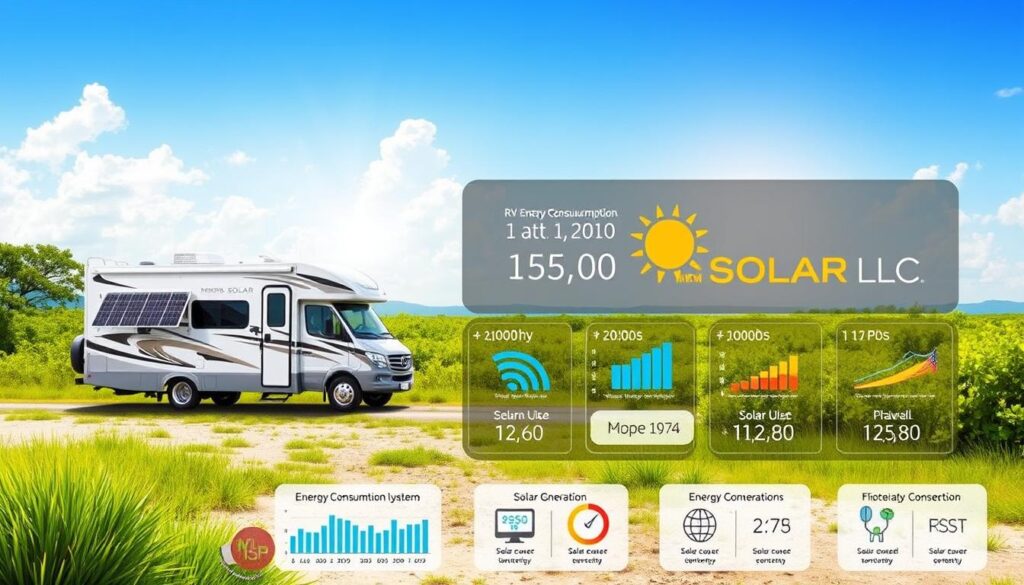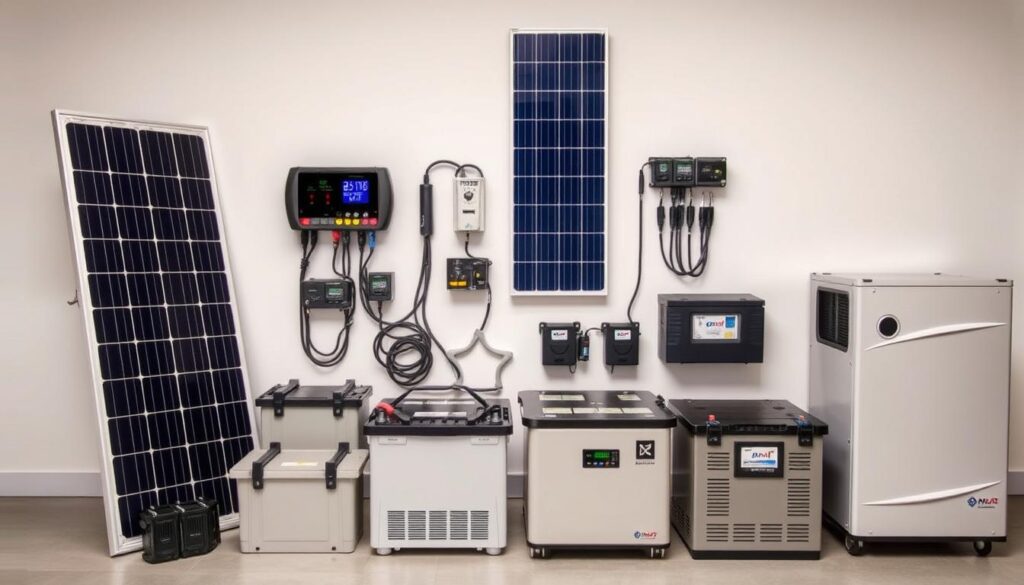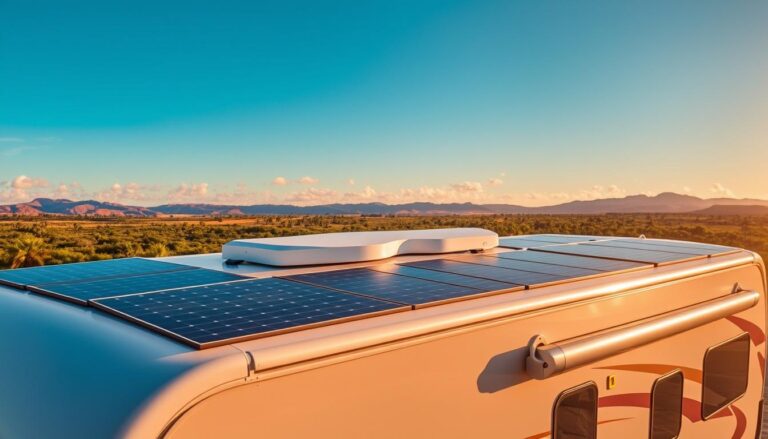At MSM Solar LLC, we’re proud to be Panhandle Florida’s trusted provider of solar power solutions. As a family-owned business with a BBB A+ rating, we specialize in designing and installing hurricane-rated systems that withstand Florida’s toughest weather conditions. Whether you’re exploring Key West or cruising through Pensacola, our solar panels for RV ensure reliable energy wherever your adventures take you.
Our NABCEP-certified team understands the unique challenges of the Gulf Coast climate. We build systems resistant to 160 mph winds and saltwater corrosion, ensuring durability and peace of mind. Plus, with our 25-year production guarantee and real-time smartphone monitoring, you can track your energy savings effortlessly.
Financially, we make it easy to go green. Take advantage of the 30% Federal Tax Credit and our $0 down financing options. At MSM Solar LLC, we’re not just a provider—we’re your local experts, committed to delivering top-notch service and sustainable solutions tailored to your needs.
Find Us Here:
Key Takeaways
- MSM Solar LLC is Panhandle Florida’s leading provider with 5-star reviews and hurricane-rated systems.
- Our NABCEP-certified team designs RV systems resistant to 160 mph winds and saltwater corrosion.
- Enjoy financial benefits like the 30% Federal Tax Credit and $0 down financing options.
- We offer a 25-year production guarantee with real-time smartphone monitoring.
- As local experts, we understand Gulf Coast climate challenges better than national providers.
Why Choose Solar Panels for Your RV?
Florida’s abundant sunshine makes it the perfect place for sustainable travel. With over 237 sunny days a year, the Sunshine State offers ideal conditions for harnessing solar power. This means you can enjoy reliable energy for your RV while reducing your carbon footprint.
Benefits of Going Solar on the Road
Switching to renewable energy sources brings numerous advantages. First, you’ll save on fuel costs. A typical RV generator uses about 0.5 gallons of fuel per hour, while solar power is completely free. Plus, you’ll enjoy a quieter camping experience without the constant hum of a generator.
For example, one of our Tampa Bay customers powered their fridge, lights, and AC for three days using a 400W system. This kind of efficiency ensures your appliances and devices stay running smoothly, even off-grid.
How Florida’s Climate Enhances Solar Efficiency
Florida’s high UV index means your system can produce up to 22% more electricity compared to northern states. Additionally, our systems are designed with corrosion-resistant coatings to withstand coastal humidity, ensuring long-lasting performance.
By choosing renewable energy, you’re also making a positive environmental impact. On average, an RV solar setup can save 1,200 lbs of CO2 annually compared to using a generator. It’s a win-win for both your wallet and the planet.
Types of RV Solar Panel Systems
When it comes to powering your adventures, flexibility and efficiency are key. At MSM Solar LLC, we offer two main types of panel systems: portable and permanent. Each has its unique advantages, and we’re here to help you choose the best fit for your needs.
Portable RV Solar Panel Systems: Flexibility and Ease
Portable systems are perfect for those who value convenience. With MSM’s quick-connect kits, you can set up your portable solar panels in just 8 minutes. These systems are lightweight, easy to transport, and ideal for occasional use.
For example, a 200W portable setup costs around $469 and is perfect for powering small appliances. However, if you’re looking for higher capacity, portable systems may not be the most efficient option. They’re great for short trips but lack the durability of permanent installations.
Permanent RV Solar Panel Systems: Maximum Efficiency
For long-term travelers, a permanent panel system is the way to go. These systems are installed directly on your roof, offering maximum energy output. With an average efficiency of 23%, they’re designed to withstand harsh weather conditions, including 130 mph winds.
At MSM, we use Tier 1 panels and UL-listed components to ensure top-notch performance. A professional installation takes about 6 hours, with hidden wiring for a sleek look. Plus, our permanent systems include GPS tracking to prevent theft, giving you peace of mind on the road.
While the initial cost is higher—around $3,500 after tax credits—the long-term benefits make it a worthwhile investment. You’ll enjoy reliable energy and significant savings over time.
How Many Solar Panels Do You Need for Your RV?
Determining the right setup for your mobile lifestyle starts with understanding your energy needs. Whether you’re powering a fridge, lights, or AC, knowing your exact requirements ensures a seamless experience on the road. At MSM, we’re here to guide you every step of the way with our free consultation service.

Calculating Your RV’s Power Consumption
To estimate your energy needs, start by listing all the devices you plan to use. For example, a fridge might consume 700 watts, while LED lights use only 10 watts. Multiply each device’s wattage by the number of hours you’ll use it daily. Add these numbers together to get your total daily consumption.
Here’s a simple formula: (Device Watts × Hours) ÷ 0.8 = Solar Watts. This accounts for inefficiencies in energy conversion. For instance, if your fridge runs for 5 hours, you’ll need 4,375 watts daily. Our team can help you simplify this process with our interactive chart and personalized estimates.
Estimating Solar Panel Requirements Based on Usage
Once you know your daily consumption, you can determine how many panels need to meet your needs. A 100W setup generates about 350Wh per day. For a 30ft Class A RV with two AC units, you’ll likely require a 1,400W+ system.
Consider derating factors like tree shade, which can reduce output by 40%, or angled mounts, which boost efficiency by 15%. A Panama City family recently shared how their 600W system powers a 12V fridge, two phones, and a laptop effortlessly. If your battery drains by 2 PM, it’s a sign your setup might be underpowered.
At MSM, we offer a solar calculator tool to help you estimate your exact requirements. Let’s work together to design a system that keeps your adventures powered and stress-free.
Essential Components for Your RV Solar Setup
Building a reliable energy system for your mobile lifestyle requires the right components. At MSM Solar LLC, we focus on hurricane-rated and UL-certified parts to ensure durability and safety. Let’s explore the key elements that keep your adventures powered and stress-free.

Battery Banks: Storing Energy for Off-Grid Adventures
Your battery bank is the heart of your energy system. It stores the power you generate for use when the sun isn’t shining. At MSM, we recommend LiFePO4 batteries for their longevity and efficiency. They last up to 3,000 cycles, compared to just 500 for traditional lead-acid options.
Here’s why our modular battery racks stand out:
- Expandable from 200Ah to 800Ah to meet your growing needs.
- Designed to withstand Florida’s heat and humidity.
- Monthly maintenance tips included for lead-acid users.
Inverters and Charge Controllers: Keeping Your System Running Smoothly
An inverter converts stored energy into usable power for your appliances. For AC units, a 3,000W+ inverter is essential to handle surges. Our charge controllers protect your batteries from overcharging, saving you from costly replacements.
Key features of MSM’s components:
- Automatic fire cutoff for added safety.
- Corrosion-resistant coatings for coastal climates.
- Real-time monitoring for peace of mind.
With the right controller and inverter, your system will run smoothly, no matter where your journey takes you.
Installation and Maintenance Tips for RV Solar Panels
Proper installation and maintenance are key to maximizing your energy investment. Whether you’re a DIY enthusiast or prefer professional help, understanding the best way to care for your system ensures long-term efficiency and reliability.
Professional vs. DIY Installation: What’s Right for You?
Deciding between professional and DIY installation depends on your skills and budget. While DIY can save upfront costs, errors cause 37% of system failures. A professional setup, like those offered by MSM’s certified installers, ensures precision and peace of mind.
Here’s a quick comparison:
- DIY: Costs around $1,200 but lacks warranties and expertise.
- Professional: Priced at $2,800, includes warranties, and takes just 5 hours for a 400W system.
Choosing the right way to install your system can save you from costly mistakes and ensure optimal performance.
Keeping Your Solar Panels Clean and Efficient
Regular maintenance is essential to keep your system running smoothly. Salt spray, common in coastal areas, can reduce efficiency by 15% monthly without proper cleaning. MSM’s mobile maintenance fleet offers convenient services to keep your setup in top shape.
Here are some tips for DIY cleaning:
- Use a soft brush and distilled water to remove salt residue.
- Inspect connectors monthly for corrosion and wires for chafing.
- Avoid harsh chemicals that can damage the surface.
By following these steps, you’ll extend the life of your investment and maintain peak efficiency.
Conclusion
Taking the leap toward sustainable energy solutions can transform your RV adventures. At MSM Solar LLC, we’re here to make it easy. With $1,800/year in fuel savings, your investment pays for itself in just four years. Plus, the 30% Federal Tax Credit drops to 26% in 2025—now’s the time to act.
Last quarter, 214 RV owners chose us for their energy needs. Together, we’ve offset 4.2 tons of CO2 annually per system, making a real difference for the planet. Our BBB A+ rating and 25-year warranty ensure you’re in trusted hands.
Ready to embrace energy independence? Schedule your free solar audit today and start your journey toward a smaller carbon footprint. Let’s power your adventures, sustainably.




